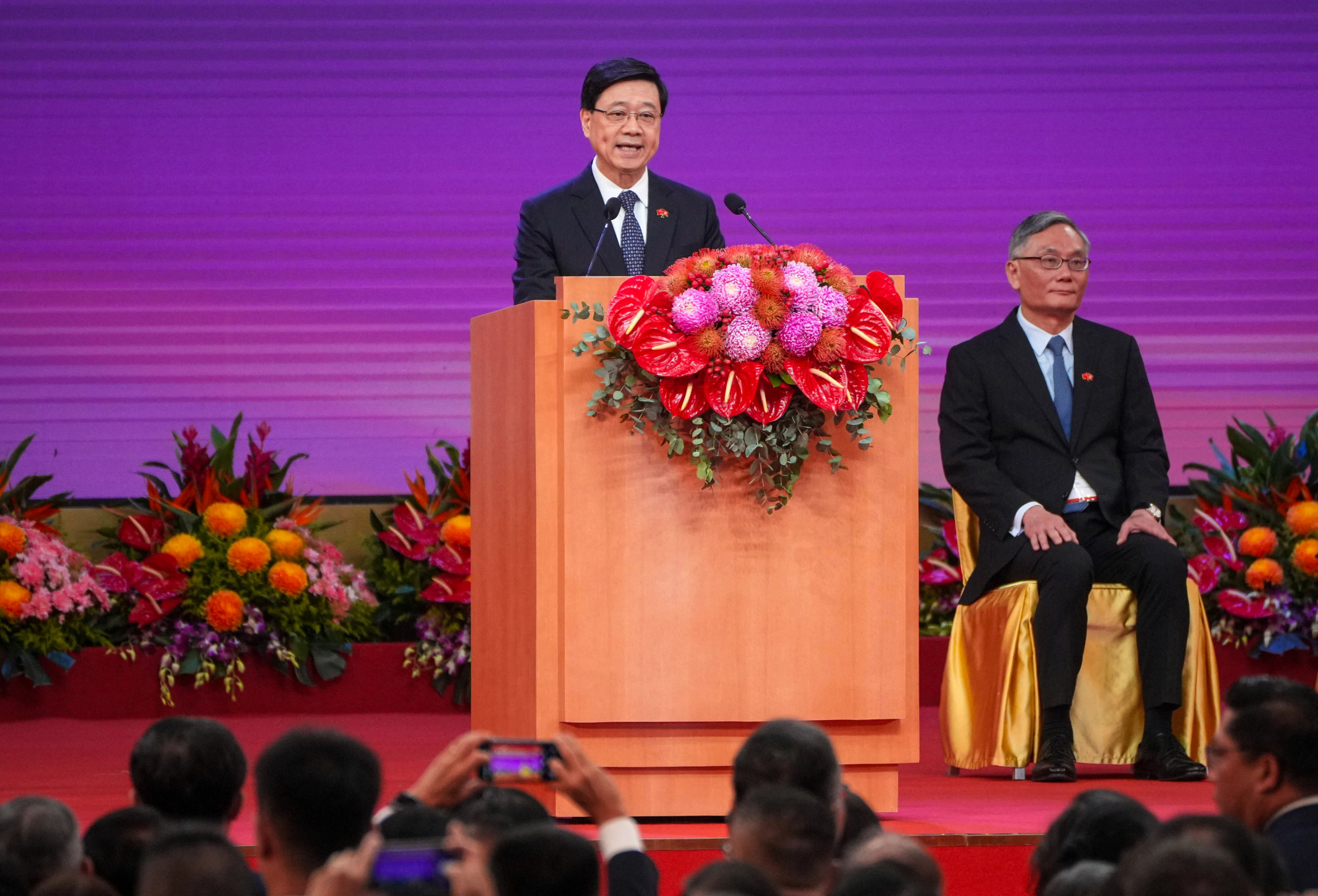“I am deeply grateful to the central government for its care and support, and for considering my proposal of sending us a pair of giant pandas.
“We will start the preparation work immediately. The giant pandas will arrive in Hong Kong in a few months, bringing us amusement and happiness.”
In a separate statement, Lee said the two pairs of giant pandas that Beijing sent to Hong Kong in the past had accompanied generations of residents, adding they were “the collective memory of all”.
The new pair will be taken care of by Ocean Park. The government has been liaising with the Hong Kong and Macau Affairs Office of the State Council and the National Forestry and Grassland Administration regarding arrangements.
The first pair of pandas – An An and Jia Jia – were gifted to Hong Kong by Beijing on the second anniversary of its return to Chinese rule in 1999. They were the oldest giant pandas in captivity at the time of their death in 2016 and 2022, respectively.
Ying Ying and Le Le arrived in the city in 2007. They are aged 18 years, equivalent to 54 human years. Both pairs failed to produce offspring.
In his 14-minute speech, Lee said “four musts” and “four proposals” delivered by President Xi Jinping in 2022 when he was in Hong Kong had become the “basis of his governing blueprint” over the past two years.
“With concerted and collective efforts of all concerned, many policies launched by the current term of the government are delivering results,” he said, hailing policy achievements ranging from national security to childbirth promotion and talent attraction.
As he started the third year of his five-year term on Monday, Lee, 66, outlined his administration’s three focuses for the coming year.
The first was to pursue economic growth and improve livelihoods, citing the light public housing scheme, set to provide 4,400 f flats by the first quarter of next year.
He also said the scheme contributed to the goal of cutting the average waiting time for a public flat from six years to 4½ years in 2026-27.
“My goal is to make Hong Kong a better place for all – for everyone to enjoy a better living environment, for young people to realise their potential, for our elderly to be well taken care of,” he said.
The chief executive went on to elaborate on the second focus which would be reinforcing Hong Kong’s competitive edge and exploring new growth areas.

He said the city should develop the “headquarters economy” and give full play to the advantages of financial services to enhance interconnectivity with the mainland’s financial market.
He singled out innovation and technology, pharmaceutical research, new energy transport as some areas of potential growth. He also highlighted that with the completion of Kai Tak Sports Park at the end of this year, his government would work harder to boost the city’s status as a hub for international arts and cultural exchanges.
Lee also pledged to make use of the opportunities offered by the mainland and the world.
Shortly after his speech, Beijing announced a new travel permit arrangement which would allow Hong Kong’s non-Chinese permanent residents to enter the mainland for five years, with each stay not exceeding 90 days.
He said the government would align with national development strategies to seize opportunities by using the Northern Metropolis mega development project as “the new engine for growth” and adopting an industry-oriented approach.
“No less important, Hong Kong will reinforce its advantages as a global city, maintaining its high degree of internationalisation,” he said, pledging to explore markets in the Association of Southeast Asian Nations and the Middle East.
He also highlighted the importance of forging ties with Europe and other Western markets to create new opportunities and fresh momentum.
“There is a Chinese saying that things are born out of planning and completed in practice,” he said. “The government will bravely shoulder its responsibilities and deliver good results.”





.jpg&h=630&w=1200&q=75&v=20170226&c=1&w=350&resize=350,250&ssl=1)












